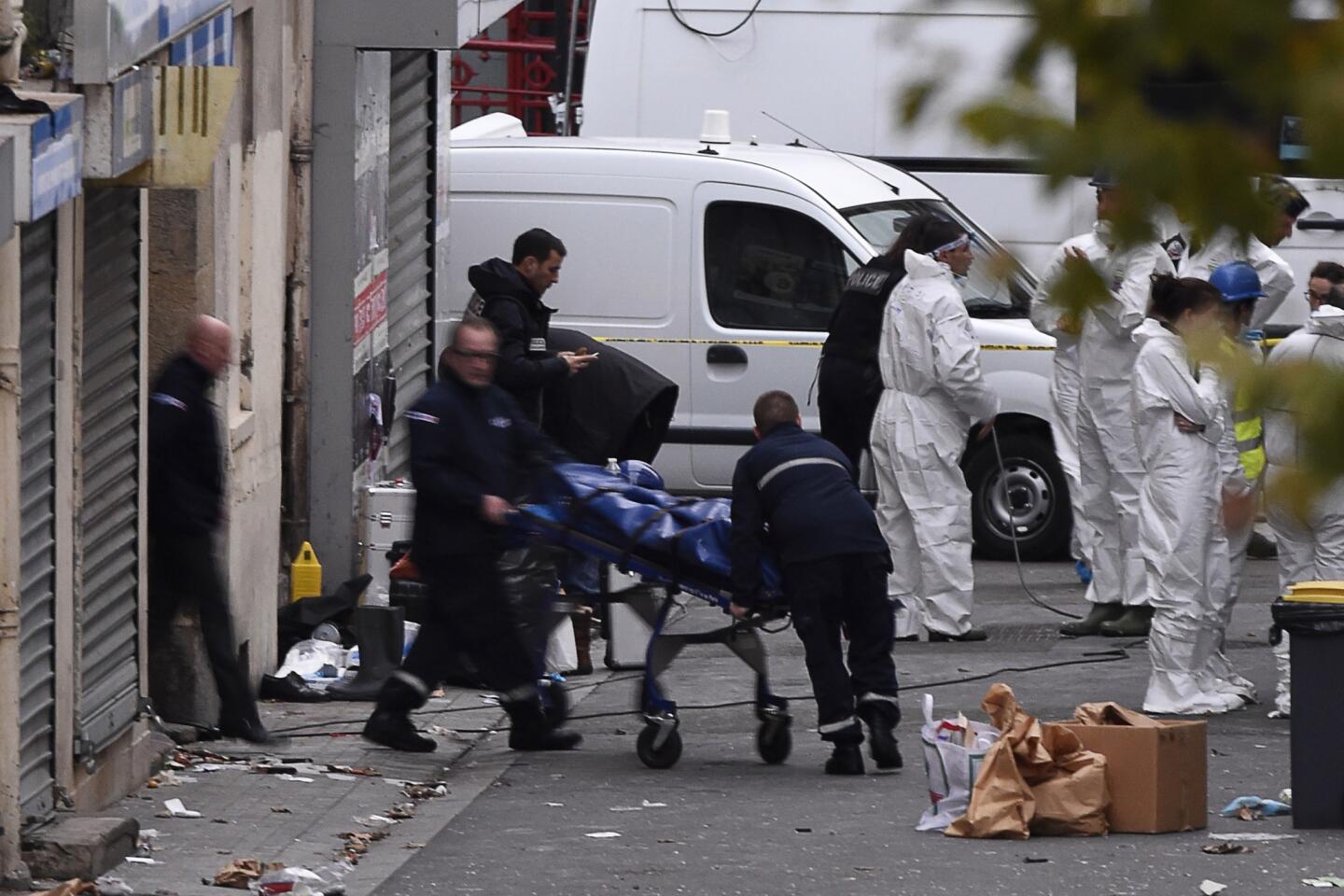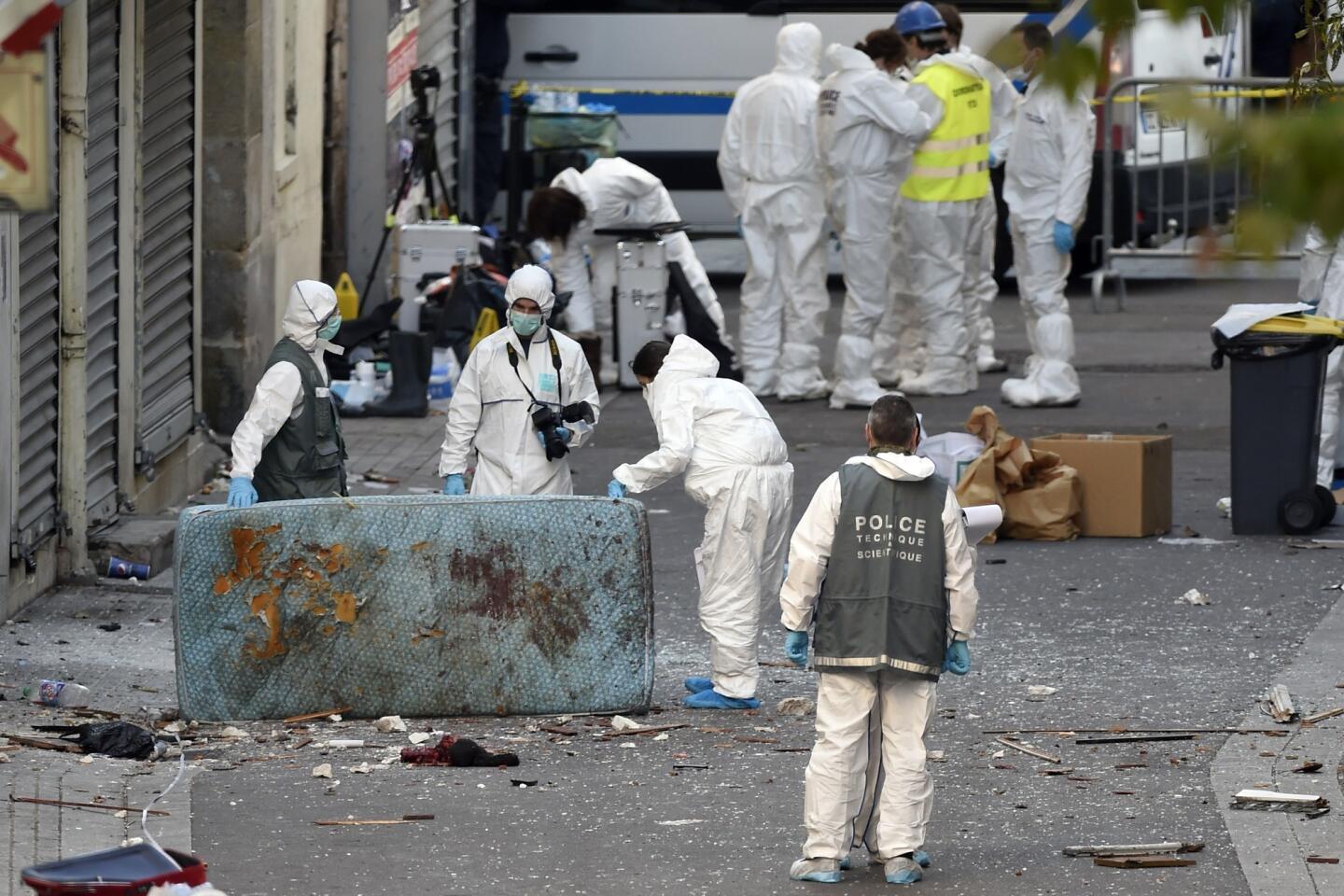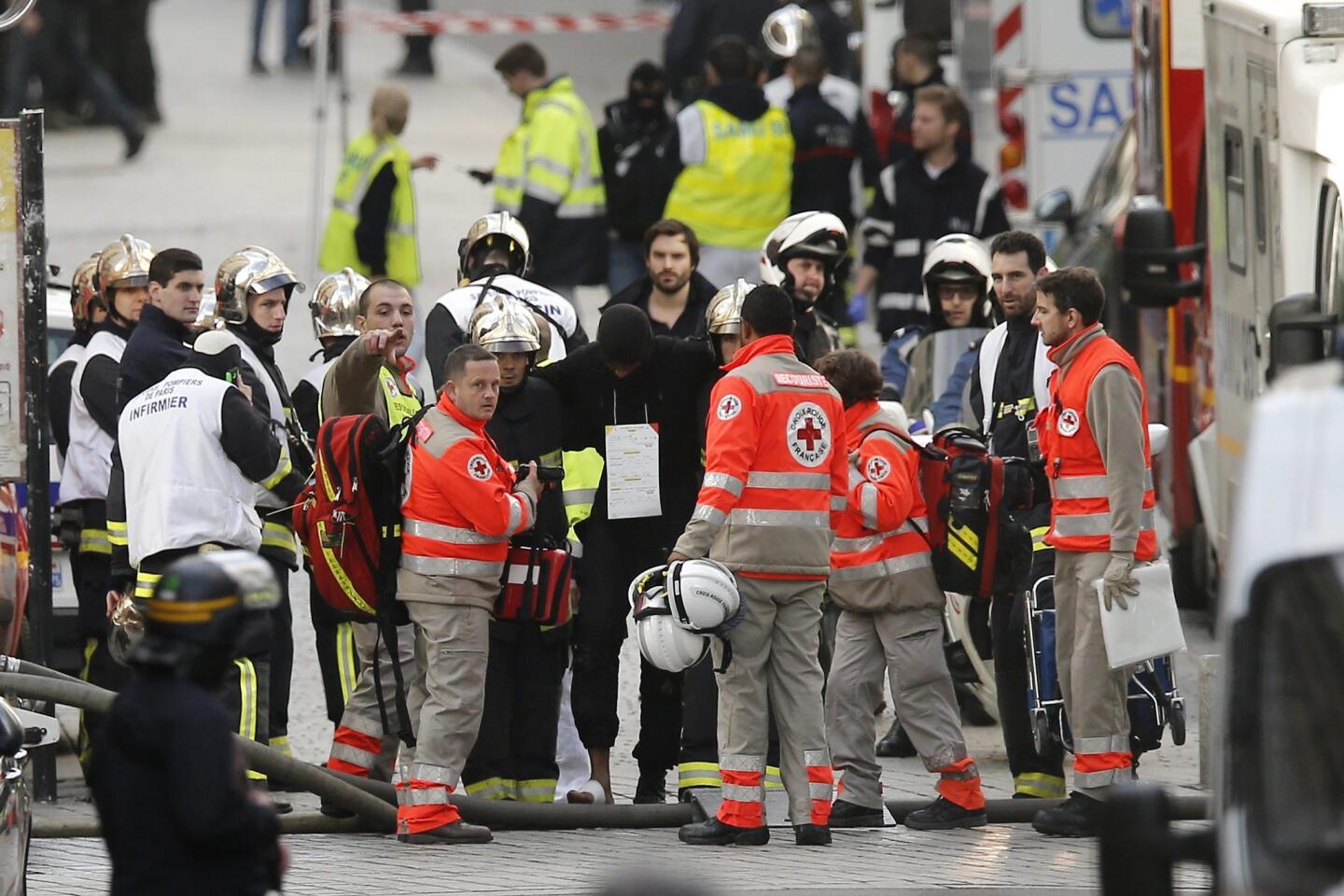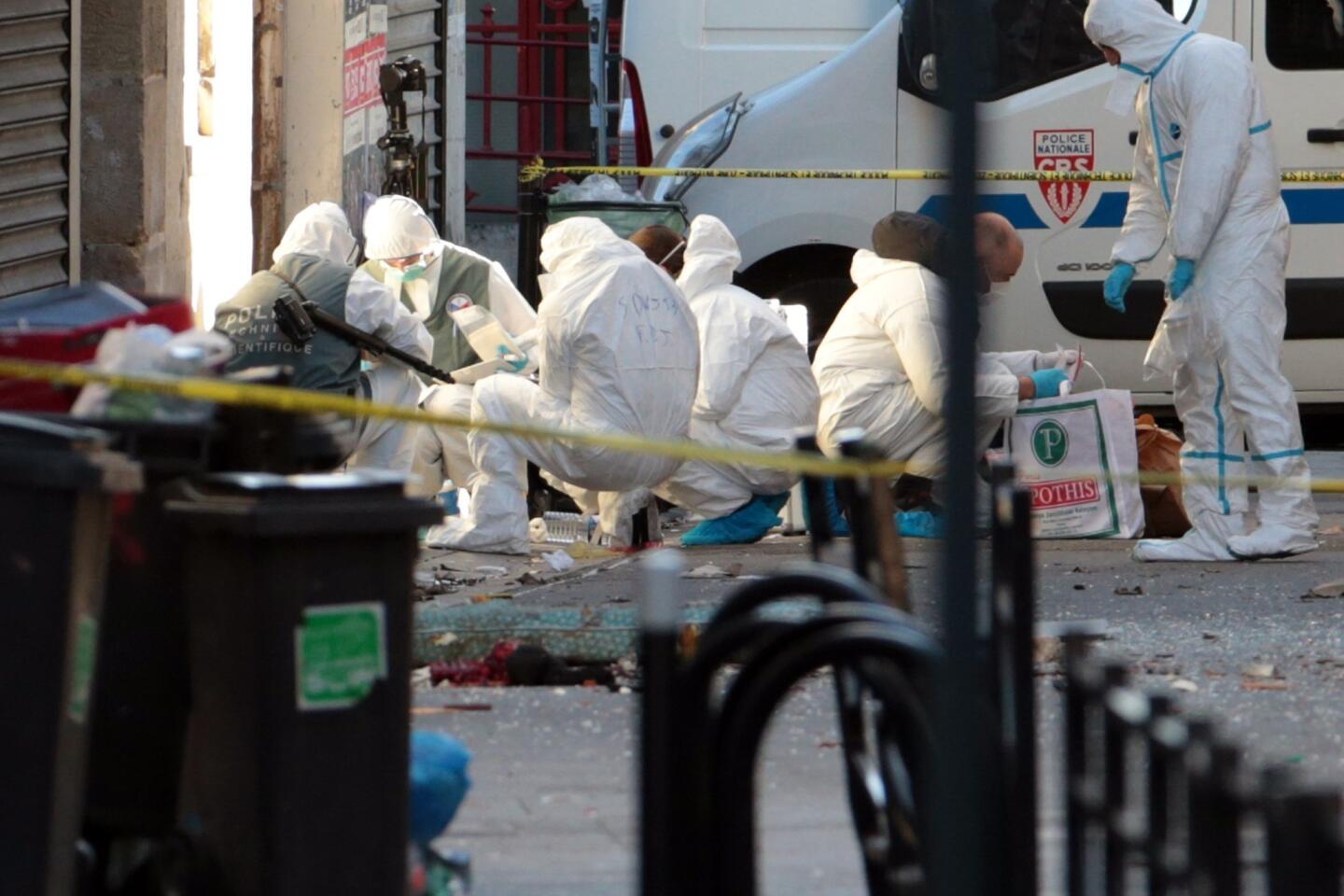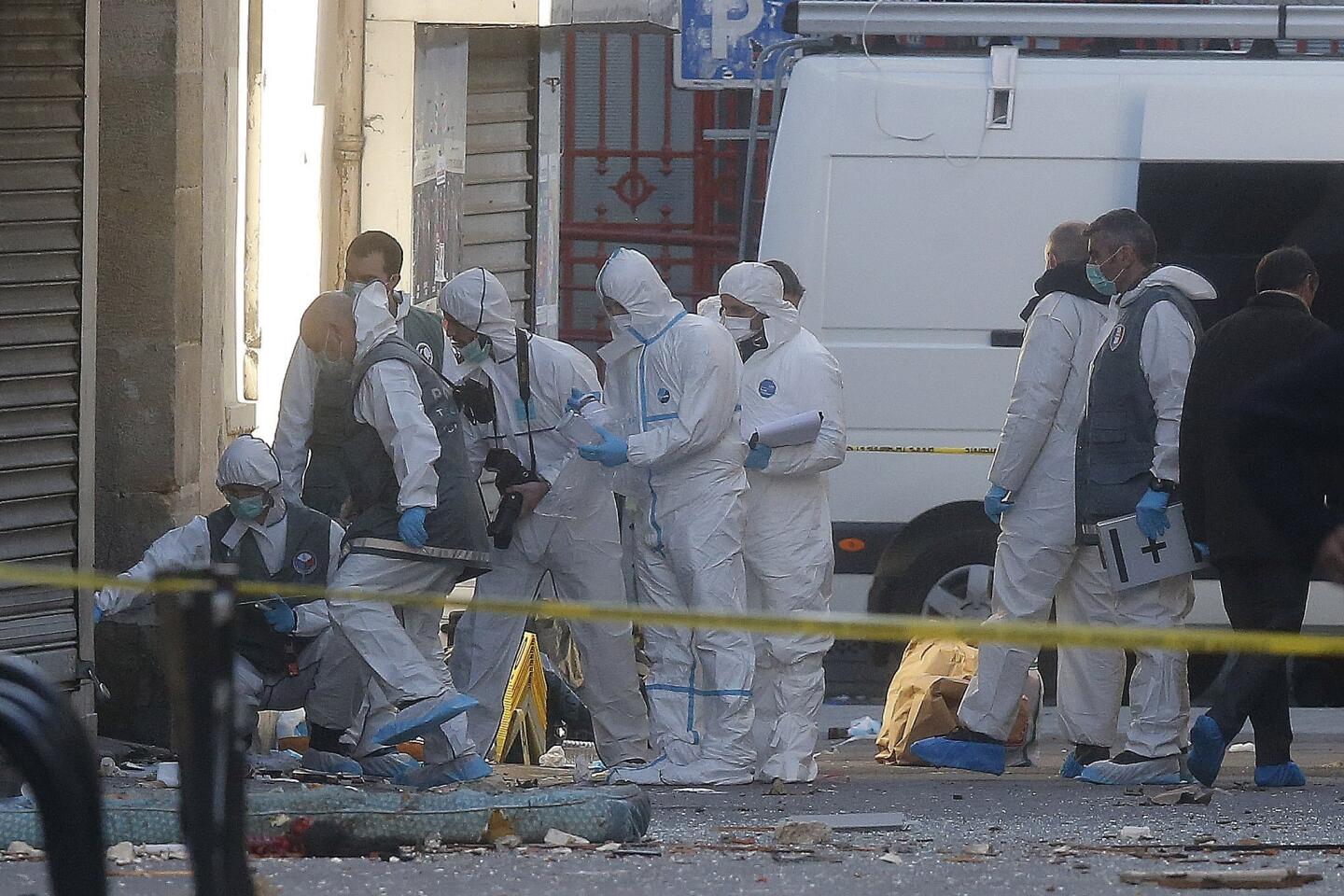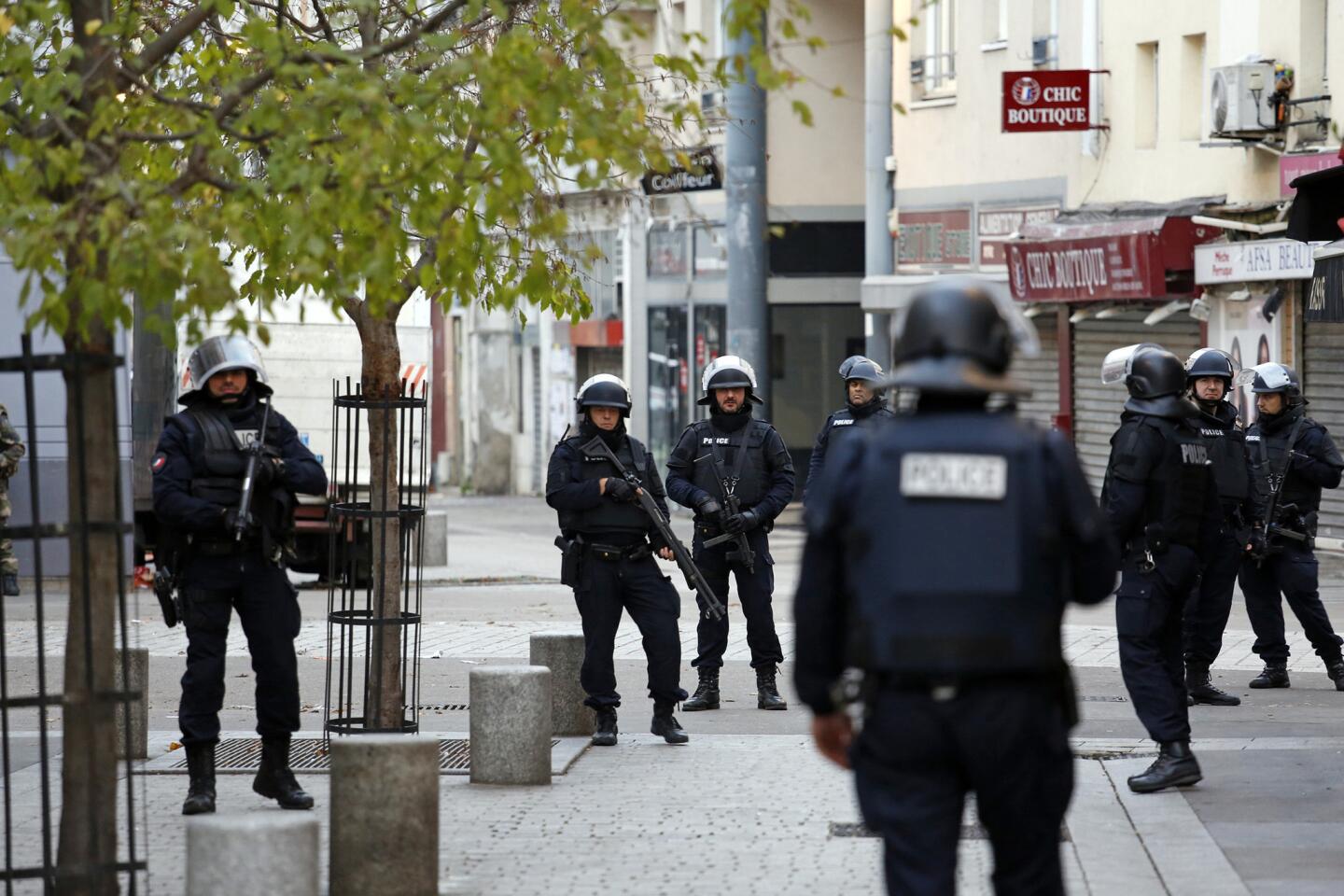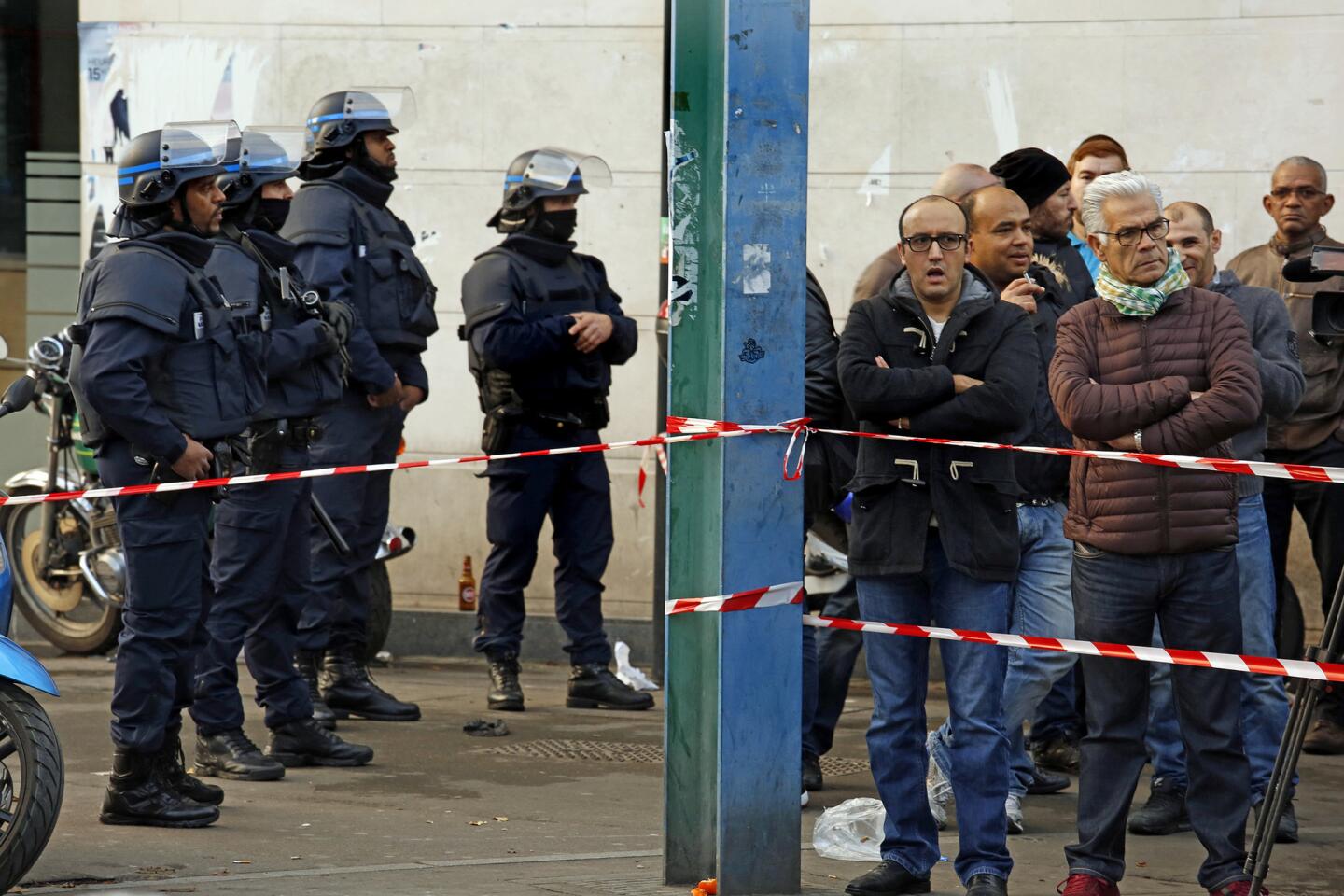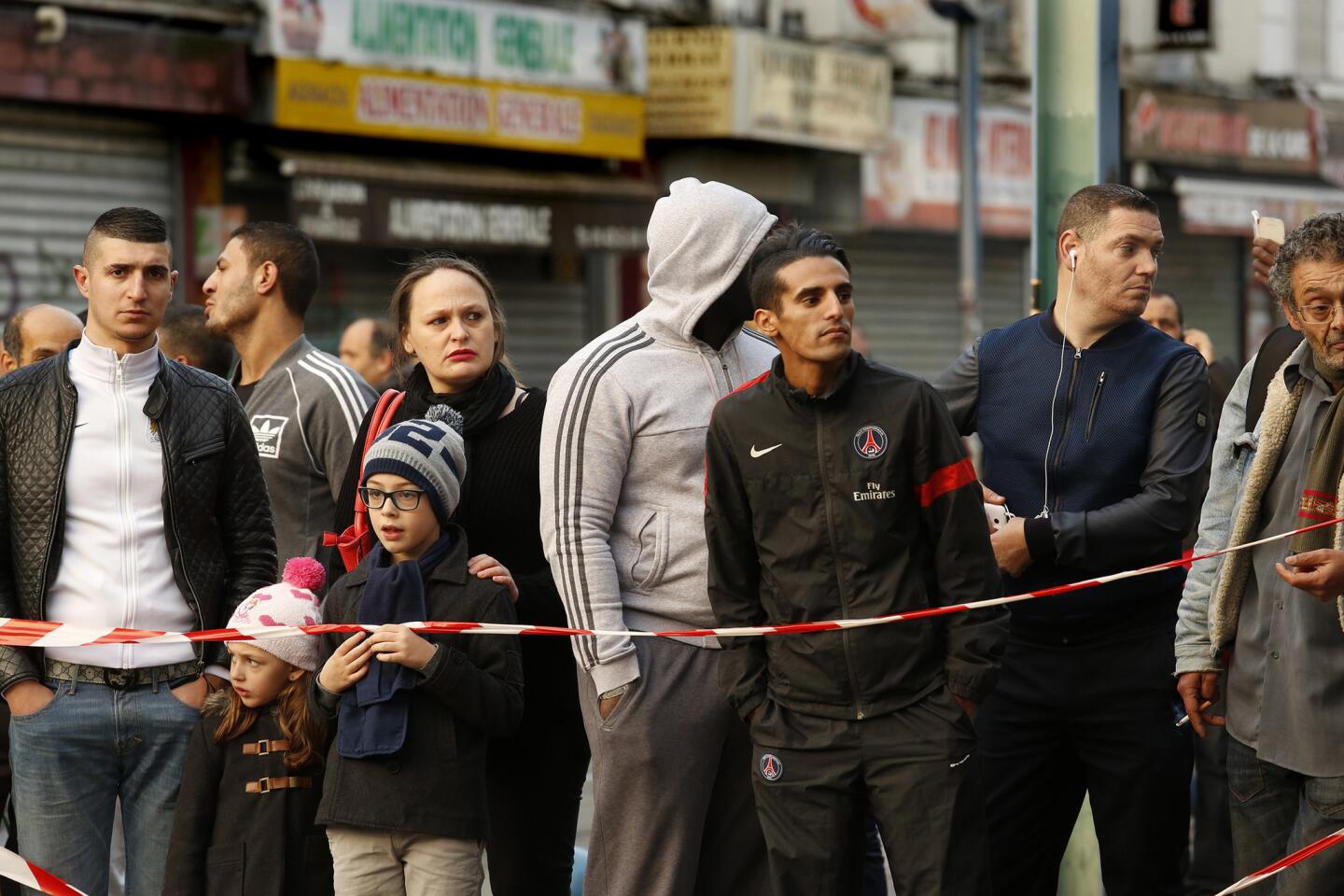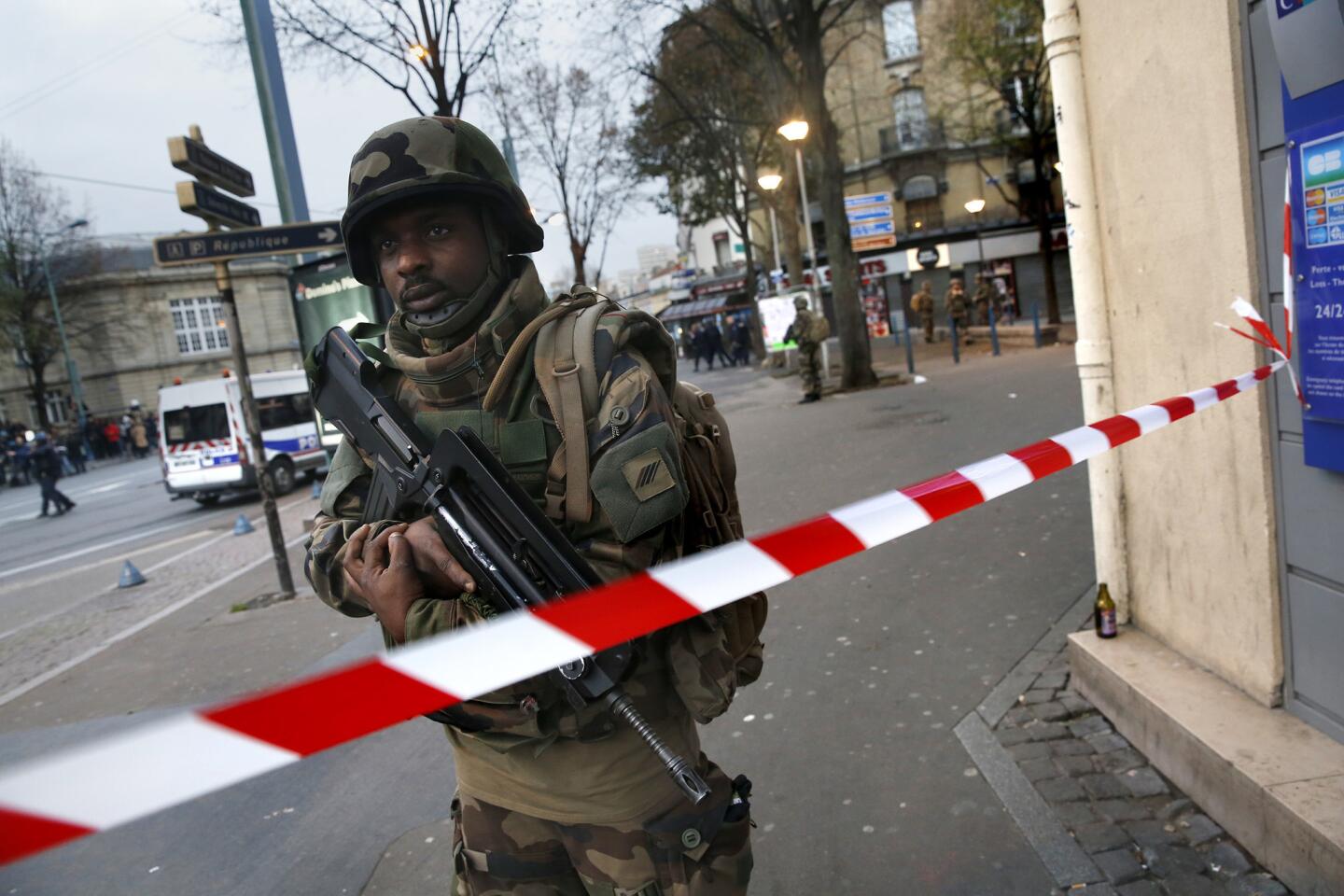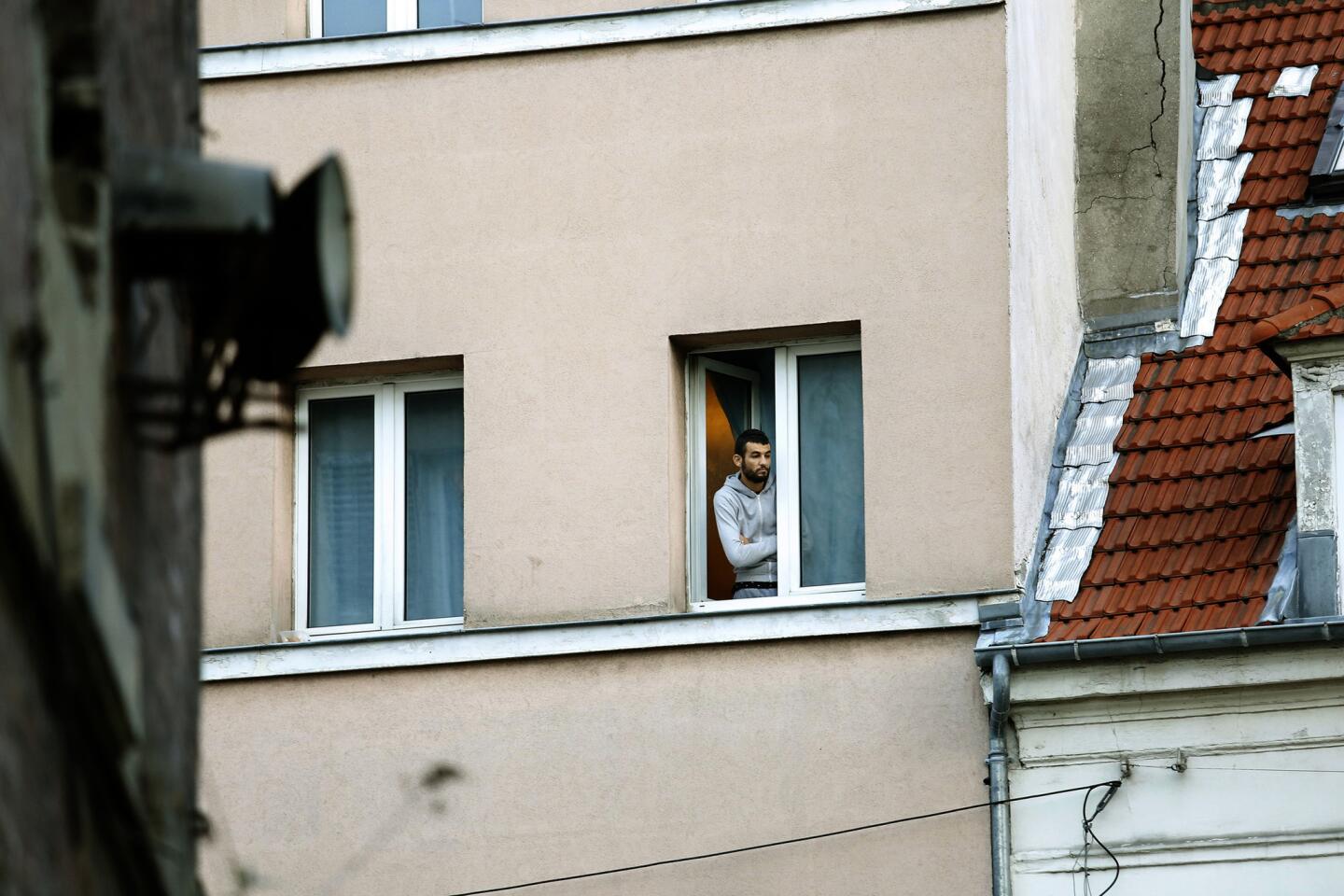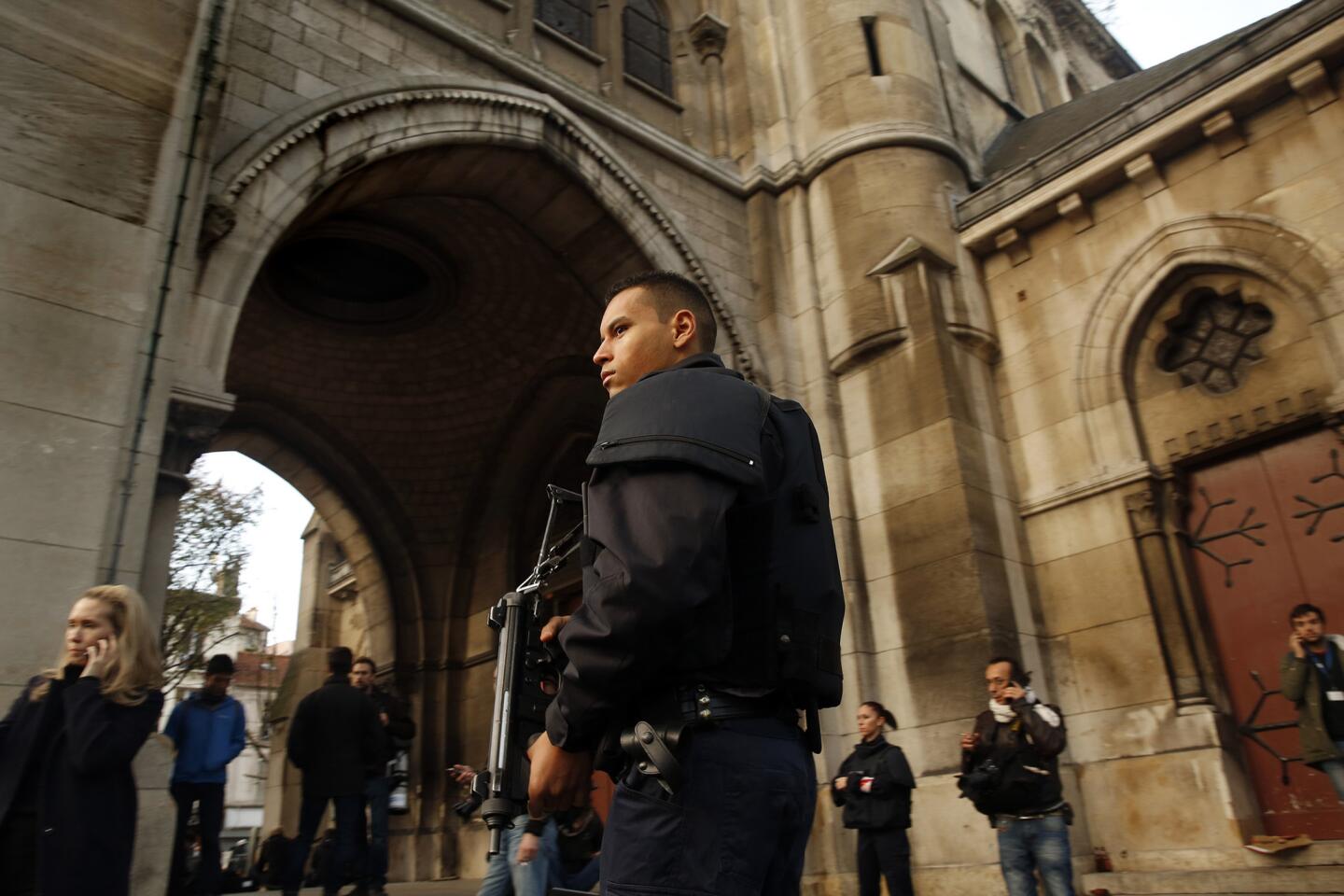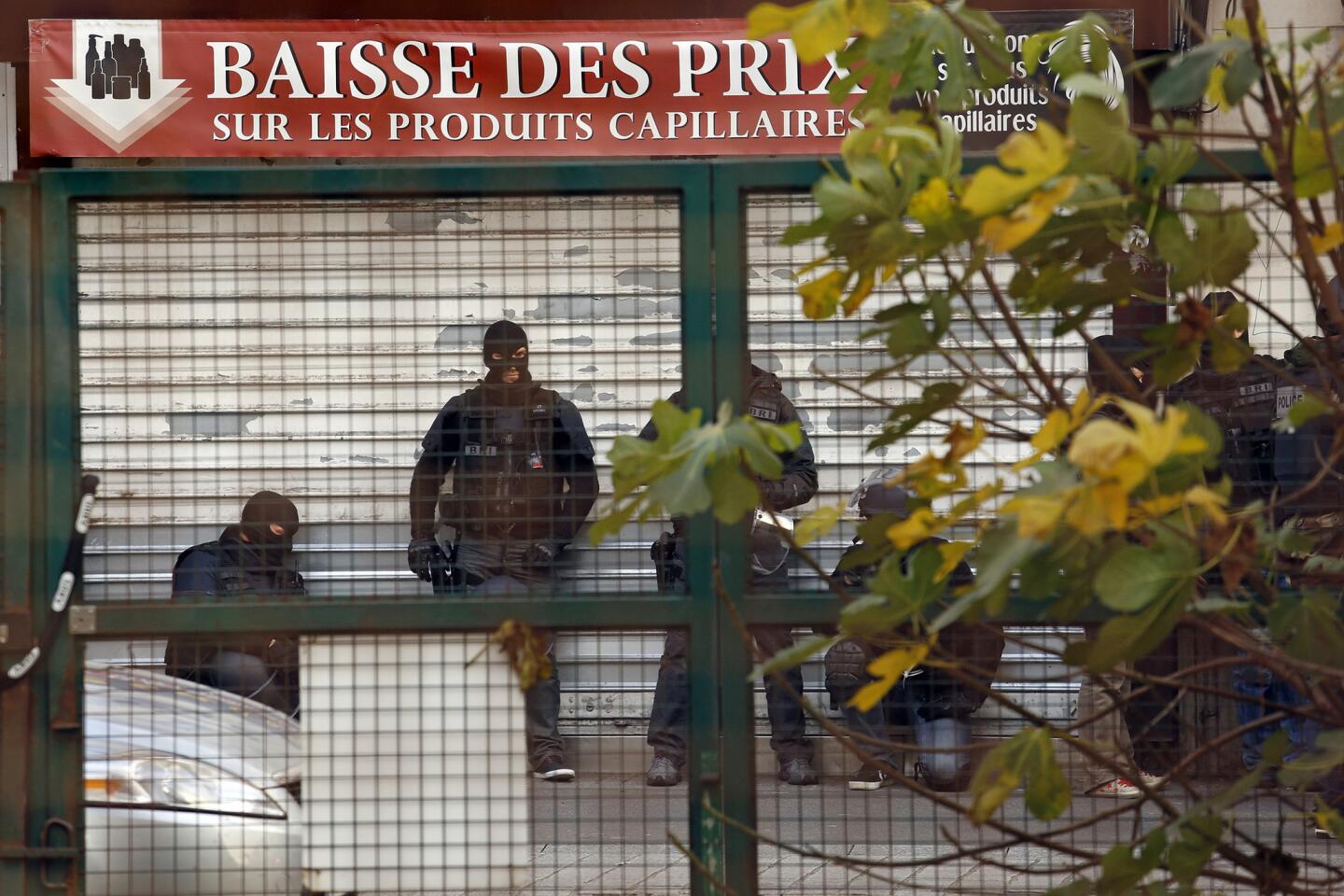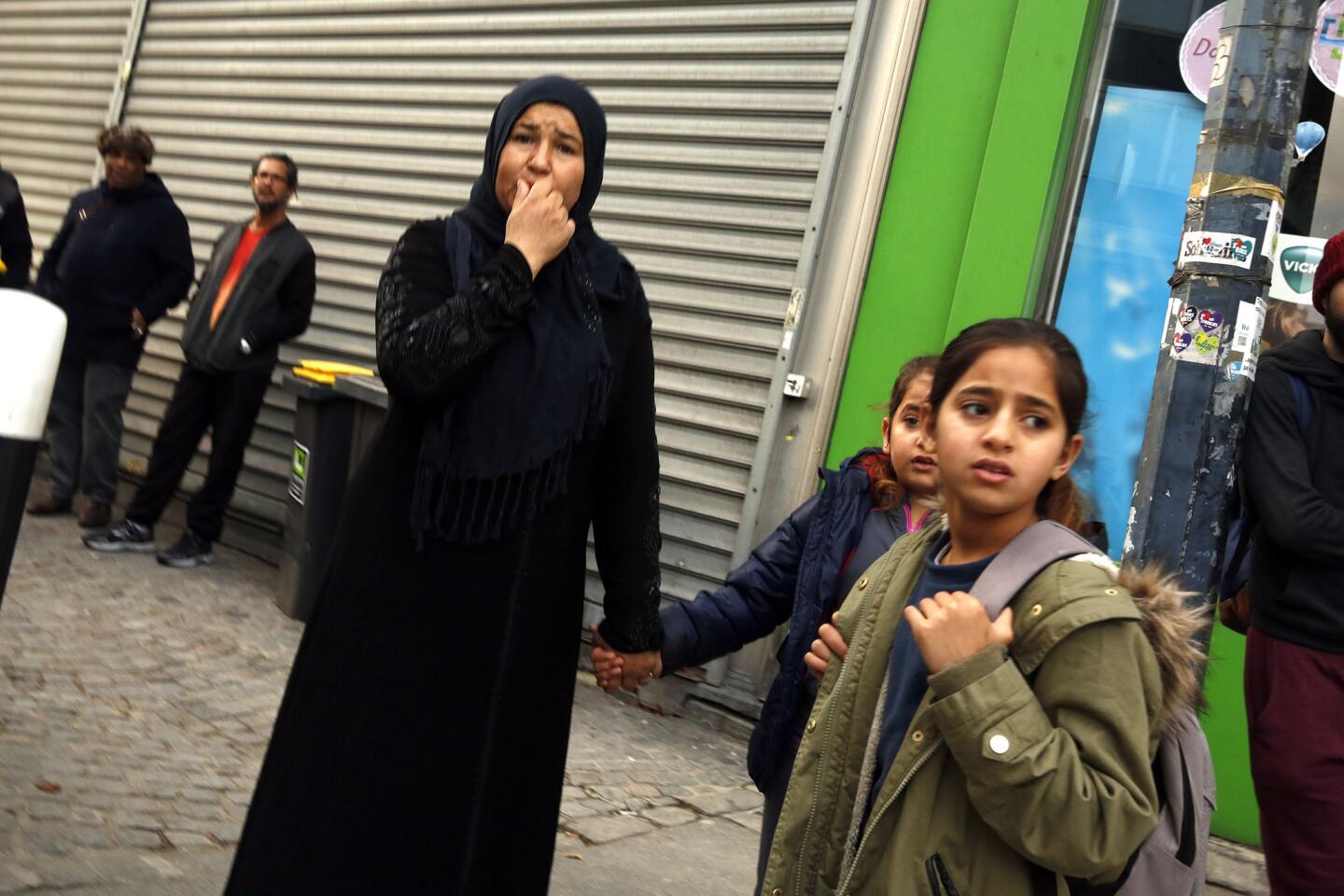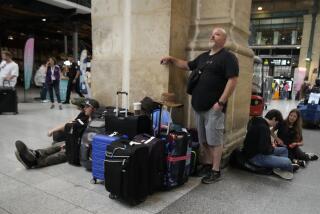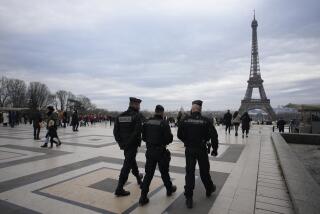Slain Paris plotter’s Europe ties facilitated travel from Syria
Reporting from Paris — As waves of refugees from Syria converged on Europe this summer, law enforcement authorities feared this scenario: That terrorist operatives would slip in among the multitudes, allowing killers and bombers to crash the gates of Europe.
Last week’s attacks on France may have validated some of those fears. At least three of the seven known attackers and the suspected ringleader, Abdelhamid Abaaoud — who was confirmed dead Thursday — are thought to have crossed clandestinely from Syria into Europe.
But there’s a catch: The French rampage did not appear to involve Syrian attackers, but rather Europeans who had gone to Syria and returned radicalized and battle-ready to wreak havoc in their homelands.
“We have changed the paradigm,” said Jean-Charles Brisard, a terrorism expert. “Our own citizens come back to Europe to perpetrate attacks. Europe needs to take that into account.”
More than 3,000 Europeans have traveled to Syria and joined Islamic State and other radical groups, experts say. Their European passports and knowledge of Western society are key assets for those plotting terrorist activities in their homelands, experts say.
French authorities confirmed Thursday that Abaaoud, a Belgian national of Moroccan descent, was killed in a police raid the previous day.
His body was found riddled with bullet and shrapnel wounds in the charred rubble of an apartment in a north Paris suburb, St.-Denis, where more than 100 police officers had swooped in on Wednesday.
In a televised news conference Thursday, French Interior Minister Bernard Cazeneuve said Abaaoud had been involved in four of six terrorist plots thwarted since the spring.
Abaaoud traveled to Syria to join Islamic State, the ultra-fundamentalist Al Qaeda breakaway faction that controls large parts of Syria and Iraq. By his own account in an Islamic State magazine, Abaaoud had become an external operative specializing in organizing attacks in his native Europe.
He has been linked to plots in Belgium and France, including an August attack on a high-speed train from Amsterdam to Paris that was thwarted when three Americans subdued the gunman and a January plot in Belgium that left two accomplices dead.
But the Paris assault — which killed at least 129 people and injured hundreds more at restaurants and cafes, a soccer game and a rock concert — was by far his deadliest and most sensational.
French authorities suspect that last Friday’s attack was largely organized in Syria and Belgium, where Abaaoud apparently had access to a team of loyal confederates with backgrounds similar to his own. From Syria, he had encouraged European French speakers to venture to the war-torn country.
Abaaoud’s apparent ability to travel between Syria and Europe without being detected, even though he has been on the law enforcement radar for years and was the target of international warrants, has highlighted grave European security lapses.
“It’s not only a security flaw, but a collective collapse,” said Brisard, who heads the French Center for Analysis of Terrorism.
But French officials seemed reluctant to acknowledge shortcomings in tracking Abaaoud and others who have returned from Syria with nefarious intentions.
On Thursday, Prime Minister Manuel Valls, who earlier in the day warned that terrorists could strike with chemical or biological weapons, told French television that authorities still had no idea how Abaaoud had entered the country. He downplayed any flaws in the system.
“Those terrorists hide, don’t communicate with the same phones we have,” Valls said.
French authorities were not aware until Monday that Abaaoud had returned to Europe, Cazeneuve acknowledged. An intelligence service “from a country outside Europe” informed France that Abaaoud had been in Greece, the interior minister said.
Details about when and how Abaaoud entered Greece remain publicly unknown. However, his presence in Greece suggests that he may have entered using the same route taken this year by legions of Syrian war refugees. Abaaoud also may have come and gone from Syria to Europe on more than one occasion.
In an interview with an Islamic State propaganda magazine this year, Abaaoud boasted of his ability to get in and out of Europe without being arrested.
It seemed unlikely that Abaaoud would have used his real identity on the trip to Europe, because warrants fingered him for terrorist-related activities. But he and other conspirators could have used a fake or stolen passport.
A Syrian passport was found near the body of one of the suicide bombers who struck last Friday outside the national stadium. But reports indicate the passport belonged to a dead Syrian soldier, meaning the suicide attacker may have been assuming a Syrian identity.
On Thursday, the Belgian prosecutor’s office said police had detained two suspects in connection with the Paris attacks after a series of raids in and around the capital, Brussels. Seven other people with links to one of the attackers were being questioned, but were not thought to have been directly involved in the attacks, the Belgian broadcaster RTBF reported.
Six of the raids were connected to Bilal Hadfi, one of the three suicide bombers who struck outside the stadium, prosecutors said. A French national, Hadfi had been living in Belgium and was also reported to have spent time in Syria.
Seven assailants died in the Paris assault, six of them by detonating suicide vests and the other shot by police. Investigators have said that at least one and possibly two other attackers remain at large.
Abaaoud was one of six children of a Moroccan shopkeeper in the Brussels borough of Molenbeek St. Jean, which has a large Moroccan immigrant community. The sprawling district across an industrial canal from the capital’s hip downtown has become notorious as an incubator of Islamist radicals who traveled to Syria and joined extremist groups.
He came from a working-class family but lived relatively well, at one point attending a prestigious private school, according to media accounts in Belgium. But Abaaoud turned to petty crime, spent time in jail in Belgium and fell under the influence of extremist Islam.
Abaaoud went to Syria and became an online recruiter of European militants before evolving into a clandestine operative, planning attacks in Europe. He also recruited a teenage brother to go to Syria. Their father, in Belgium, has publicly denounced Abaaoud’s activities. On at least one occasion he was reported to have been killed in Syria, possibly as a ruse to keep him off law enforcement radar and help him enter Europe.
His image became infamous in Europe last year when a video surfaced online showing a laughing Abaaoud wearing a floppy hat and driving a pickup truck towing a group of tethered corpses through a field in northern Syria, apparently en route to a mass grave.
“Before, we towed jet skis, motorcycles, quad bikes, big trailers filled with gifts for vacation in Morocco,” Abaaoud says, mugging for the camera as he pilots the Dodge pickup through a field. “Now, thank God, following God’s path, we’re towing apostates, infidels who are fighting us.”
McDonnell reported from Paris and Zavis from Los Angeles. Times staff writer Brian Bennett in Washington and special correspondent Clara Wright in Paris contributed to this report.
Follow @mcdneville and @alexzavis on Twitter
MORE ON THE PARIS ATTACKS
French investigators believe another attacker could still be at large
2 Air France flights to Paris diverted because of bomb threats
Republican rhetoric will become an Islamic State recruiting tool, Obama says
More to Read
Sign up for Essential California
The most important California stories and recommendations in your inbox every morning.
You may occasionally receive promotional content from the Los Angeles Times.
